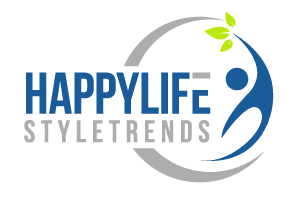Parents always want the best for their babies, especially when it comes to their nutrition. Baby formulas are a convenient way to provide essential nutrients to infants who are not breastfed.
However, there have been increasing concerns about the connection between certain baby formulas and Necrotizing Enterocolitis (NEC), a severe gastrointestinal condition that primarily affects premature babies, as we explore below.
Understanding NEC

What is NEC?
Necrotizing Enterocolitis, or NEC, is a gastrointestinal disease that primarily affects premature infants. It involves inflammation and damage to the intestines, which can lead to serious complications.
NEC in Premature Babies
Premature babies are particularly vulnerable to NEC because their gastrointestinal systems are not fully developed. The exact cause of NEC is still not completely understood, but several factors, including feeding practices, have been linked to its development.
The Link Between Baby Formula and NEC
Ingredients to Watch Out For
Certain ingredients in baby formulas, such as cow’s milk protein and high osmolality, have been associated with an increased risk of NEC. It’s crucial for parents to be aware of these components when choosing a formula for their baby.
Formula Preparation and Contamination
Improper formula preparation or contamination can also contribute to the development of NEC. Ensuring that formula is prepared according to instructions and with clean equipment is essential for reducing the risk.
Common Injuries and Complications
Digestive Issues
NEC can cause severe digestive problems in infants, including abdominal distention, vomiting, and bloody stools. These symptoms can lead to discomfort and malnutrition.
Infections
In severe cases, NEC can lead to bloodstream infections, which can be life-threatening for fragile premature infants. Timely medical intervention is crucial to prevent such complications.
Surgery
In some instances, NEC may require surgical intervention to remove damaged portions of the intestines. Surgery carries its own set of risks and challenges for both the baby and the medical team.
Preventing NEC and Choosing Safe Baby Formula
Breastfeeding vs. Formula Feeding
Breastfeeding is considered the best way to reduce the risk of NEC. However, for mothers who cannot breastfeed, choosing the right baby formula is essential.
Selecting a Safe Baby Formula
Parents should consult with their pediatrician to select a baby formula that is suitable for their baby’s specific needs and potential risk factors for NEC.
Signs and Symptoms
It’s crucial for parents to be aware of the signs and symptoms of NEC, as early detection can significantly impact the outcome and treatment options. Also Read – Impact of the mattress on Spine Health
Treatment Options
Medical Management
In less severe cases, medical management may be sufficient to treat NEC. This can include antibiotics, withholding feeds, and close monitoring.
Surgical Intervention
In more advanced cases, surgical intervention may be necessary to remove damaged portions of the intestines and prevent further complications.
Recovery and Long-Term Effects
The recovery process from NEC can be challenging, and there may be long-term effects on a child’s digestive health. It’s essential for parents to provide ongoing support and follow-up care.
Support for Parents
Caring for a baby with NEC can be emotionally and physically taxing. Seeking support from healthcare professionals, attorneys that handle NEC cases, and support groups can make a significant difference in coping with the stress and challenges.
Conclusion
In conclusion, NEC is a serious condition that demands attention and care, informed choices and practices can significantly mitigate its risks. By prioritizing breastfeeding where possible, being cautious with formula selection, adhering to safe preparation guidelines, and closely monitoring their infant’s health, parents can play a crucial role in preventing NEC and ensuring the optimal health and development of their babies. Support from healthcare professionals and the community is essential in navigating this journey, offering both knowledge and reassurance to parents facing the challenges of infant feeding and NEC prevention.




